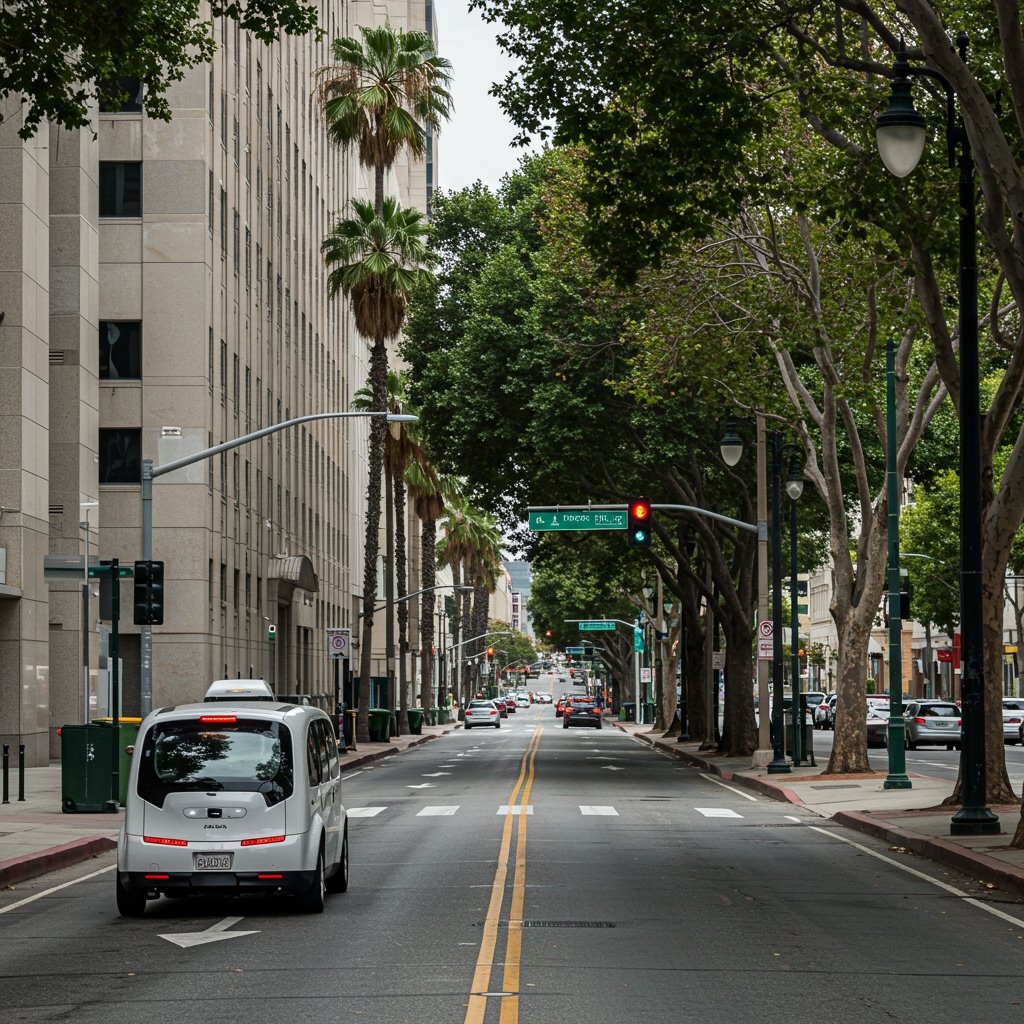California Moves to Strengthen Autonomous Vehicle Safety Regulations
Sacramento, CA – In a significant move aimed at bolstering public safety amid the rapid advancement of autonomous vehicle (AV) technology, California Governor Gavin Newsom on February 15, 2025, officially signed Assembly Bill 789 into law. This landmark legislation establishes a dedicated state commission tasked with developing and enforcing enhanced safety regulations specifically designed for autonomous vehicles operating across California’s extensive public road network.
The creation of the Autonomous Vehicle Safety Commission marks a pivotal step in the state’s approach to integrating self-driving cars safely alongside traditional traffic. As AV technology evolves and its deployment expands, particularly in dense urban areas, ensuring robust oversight and rigorous safety standards becomes paramount. AB 789 is a legislative response to this growing need, aiming to proactively address potential risks and build public trust in autonomous transportation.
The Autonomous Vehicle Safety Commission: Structure and Expertise
The newly formed commission will consist of seven members, carefully selected for their relevant expertise. This multidisciplinary composition is intended to provide a comprehensive perspective on the complex challenges associated with autonomous systems. The bill mandates that the commission include experts in key fields such as transportation engineering, cybersecurity, and consumer safety advocacy. This diverse skillset is crucial for evaluating the multifaceted aspects of AV safety, from the physical mechanics and traffic flow integration (transportation engineering) to the protection against hacking and software vulnerabilities (cybersecurity), and the critical concerns regarding pedestrian and occupant safety, privacy, and accessibility (consumer safety advocacy).
The Autonomous Vehicle Safety Commission will operate with a direct reporting line to the Department of Motor Vehicles (DMV). The DMV currently oversees the permitting and testing of autonomous vehicles in California. Placing the commission under the DMV’s purview ensures close coordination between the regulatory development body and the agency responsible for licensing and enforcement. This structure is designed to streamline the process of translating safety recommendations into actionable regulations and permit requirements.
Key Responsibilities and Mandate
Assembly Bill 789 outlines a clear and extensive mandate for the Autonomous Vehicle Safety Commission. Their primary responsibilities are centered around data-driven analysis, standard setting, and expert advisory roles:
* Reviewing Accident Data: A critical function of the commission will be the thorough review and analysis of accident data involving autonomous vehicles. By studying real-world incidents, the commission can identify common failure points, environmental factors, and behavioral patterns of both the AVs and other road users. This data will be instrumental in informing the development of effective safety measures and performance standards.
* Setting Stricter Performance Standards: The bill empowers the commission to develop and set stricter performance standards for AVs. These standards will go beyond existing general vehicle safety rules, focusing on the unique capabilities and limitations of autonomous systems. This includes defining rigorous performance benchmarks for various driving scenarios, encompassing both challenging urban environments with complex intersections, pedestrians, and cyclists, and high-speed highway driving conditions where reaction times and vehicle dynamics are critical. The goal is to ensure AVs not only operate reliably in ideal conditions but can safely navigate unpredictable and hazardous situations.
* Advising the DMV on Permit Approvals: The commission will play a vital advisory role to the DMV regarding permit approvals. This includes advising on permits for the testing and deployment of new AV technologies, as well as advising on proposed expansions of AV operations into major cities. Specific mention is made of advising on expansions in key urban centers like San Francisco and Los Angeles, where the concentration of vehicles, pedestrians, and complex road layouts presents unique challenges for autonomous systems. The commission’s expert input will help the DMV make informed decisions about when and where AV technology is ready for broader public use, ensuring that safety considerations are prioritized in the deployment process.
Legislative Journey and Support
Assembly Bill 789 was authored by Assemblymember Lena Chen, a Democrat representing Oakland. The bill navigated the legislative process with significant support from both sides of the aisle, underscoring a broad consensus on the importance of proactive AV safety regulation. The bill successfully passed the State Assembly with a strong bipartisan vote of 65-10 and subsequently received overwhelming approval in the State Senate, passing with a vote of 32-7. This level of bipartisan backing highlights the perceived necessity and practical nature of establishing a dedicated safety body for autonomous vehicles.
Assemblymember Chen emphasized the need for California, a hub of AV development and testing, to lead in establishing clear and stringent safety guidelines. The collaborative effort between legislators from different parties reflects a shared commitment to fostering innovation responsibly while safeguarding the public.
Looking Ahead: Impact and Implementation
The signing of AB 789 sets the stage for the formation of the Autonomous Vehicle Safety Commission and the commencement of its critical work. The process of appointing the seven members with the required expertise will be a key first step. Once established, the commission will begin its deep dive into data analysis, consultation with industry stakeholders, safety advocates, and the public, and the painstaking process of drafting robust safety standards.
The commission’s recommendations and the resulting DMV regulations are expected to significantly influence how autonomous vehicle technology is developed, tested, and deployed in California. For AV companies, this will mean adhering to potentially higher or more specific performance benchmarks. For the public, it aims to provide greater assurance that autonomous vehicles operating on their roads meet rigorous safety criteria overseen by a dedicated, expert body. The outcome of the commission’s work will be closely watched nationally and internationally, potentially setting a precedent for how other jurisdictions approach the regulation of increasingly sophisticated self-driving technologies. California, with this new commission, reinforces its position not just as a leader in technological innovation but also in the thoughtful and safety-conscious governance of that innovation.


















